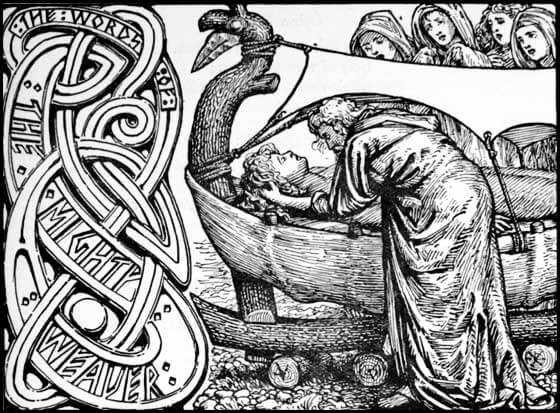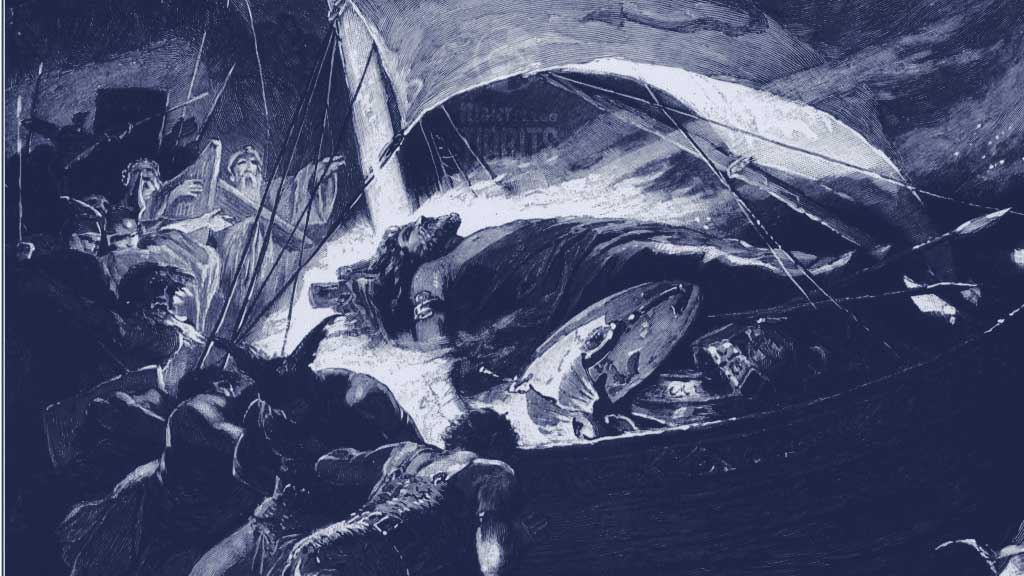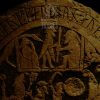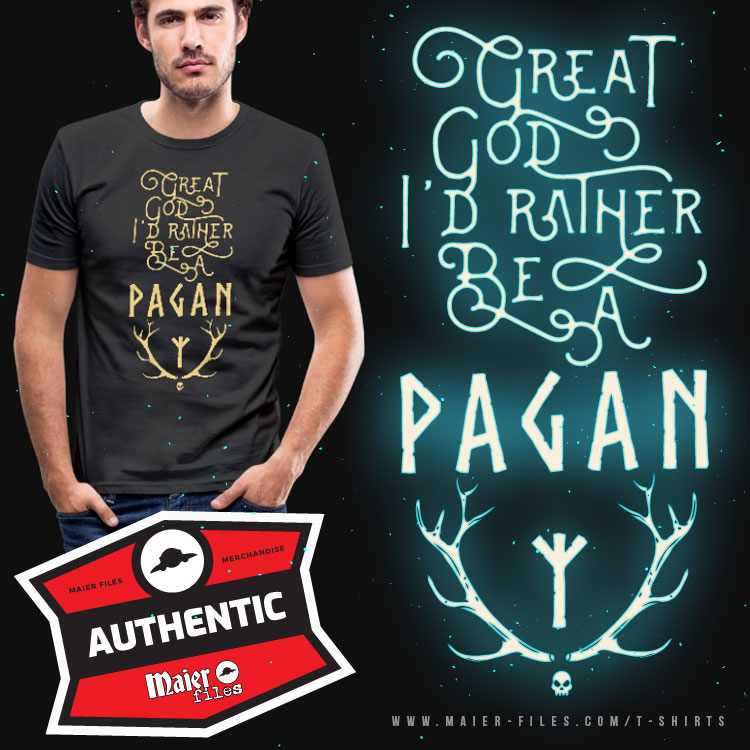The crime that finally turned the gods against Loki was his role in the death of Balder, however this event is also one of the great puzzles of northern mythology. Why were Odin and Frigg, with all their knowledge, not able to prevent the disaster? What did Odin say -before he climbed on bale-fire- into the ear of his son? This is maybe the greatest secret of the North that only two know.
Snorri lets us know that Balder is the most attractive and most adored of the gods. In his version of the story, after Frigg had gotten everything in the worlds except the little mistletoe to swear not to harm him, the gods played a game in which they tossed weapons at Balder.
Meanwhile Loki, in the shape of an old lady, had gotten the secret out of Frigg and cut an arrow of mistletoe, placing it in de hand of the visually impaired god Hoeder and pointing it at Balder. After Balder’s death, Hel said that she would release him if everything in the universes would sob for him – and all did as such, with the exception of one giantess named Thokk, who was as Snorri lets us know, Loki in camouflage.
Different versions
There are many different versions of the story however in every one of them Balder dies.
Some variant forms of the Siegfried story also offer a suspiciously close correspondence to the story of Balder’s death. According to the Nibelungenlied, Siegfried had bathed in a mythical dragon’s blood and was therefore invulnerable except from one spot on his back where a linden leaf had fallen.
The one eyed, Hagen discovered from Siegfried’s wife Krimhilde where that spot was, and speared Siegfried in the back as he bowed to drink from a stream. Both, Balder and Siegfried are exceptionally similar: attractive and cherished by all, the most daring of men and the best of warriors, yet destined to die young in spite of all his strength and magical warding.

In “Altgermanische Religiongeschichte”, the essayist De Vries translated Balder’s demise as a initiation ritual and without a doubt an adolescent’s passage through death to return as a man and a ruler. This can also be compared with Odin’s initiation on the World-Tree: he dies, sinks down, and returns more powerful than before. Balder’s initiation, nonetheless, is far longer-enduring, and may even have greater meaning to the universes.
Walhalla
Since he doesn’t join the warriors in Walhalla, in spite of the certainty he has been killed with a shooting weapon and burned by the common rites of the followers of Odin, he will not die at Ragnarok. Rather, he’s in Hel’s safekeeping all through the last fight, so that when the world is reawakened, he can assume his father’s position to make the might of the gods great once more.
The universes sob at Balder’s passing, since they find in it the indication of their own fate too, however we realize that Balder won’t be lost forever. As Gundarsson proposes in his writings, perhaps the mystery which Odin whispered in Balder’s ear could be the rune eihwaz, the rune of the will which survives death and rebirth … life covered up inside death as the flame is hidden within the rough, cold bark of the yew …

By this rune Baldr, hidden for a time in Hel’s protecting kingdom, can bring himself and Hoeder alive again after Ragnarok. Balder is the seed of trust and hope. Living, he resembles Siegfried, the daring youthful legend who encapsulates all that is brightest inside us. His sacrifice ends the old age and brings the new to birth; as he waits in Hel’s halls for his rebirth, he reminds us that even Ragnarok cannot destroy the might of the god/desses nor the best of what they, and we, have created.
Hella’s Hall
As Balder waits in Hel, feasting in Hella’s hall, some believe that he is collecting his own band of heroes who will come forth with him after Ragnarok to guard the new-born world. In Hel he also has access to the wisdom of the ancestors. Nevertheless there are no indications in the legend of the ancestors of him doing anything for the humans.
His strength is not what he does, but rather the guarantee of what he is and should get to be. Grimm mentions in his “Teutonic Mythology” a holiday once observed in the Rhineland called Pfultag. (May 2) which he compares to the Irish holiday Beltaine. This could be associated with Balder. Falling immediatly after Walpurgis, might be a fitting one to honor him, and to remember that the Spring has returned.
![]()




